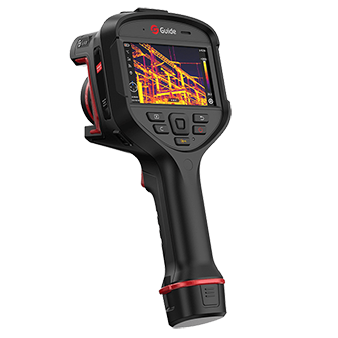
html
Thermographic Camera Applications in Modern Technology
Thermographic cameras, also known as infrared cameras or thermal imaging cameras, have become indispensable tools in various industries. These devices detect infrared radiation and convert it into visible images, allowing users to visualize temperature differences. From industrial inspections to medical diagnostics, thermographic cameras are revolutionizing how we approach problem-solving and efficiency.
Industrial Maintenance and Inspection
One of the most significant applications of thermographic cameras is in industrial maintenance. These cameras help identify overheating components in electrical systems, mechanical equipment, and pipelines. By detecting abnormal heat patterns, maintenance teams can address potential failures before they occur, reducing downtime and preventing costly repairs.
Key benefits in industrial applications include:
- Non-contact temperature measurement
- Early detection of electrical faults
- Identification of insulation defects in buildings
- Monitoring of mechanical equipment performance
Medical and Healthcare Applications
In the medical field, thermographic cameras have proven valuable for diagnostic purposes. They can detect variations in body surface temperature, which may indicate underlying health issues. Some notable medical uses include:
Keyword: thermographic camera
- Breast cancer screening (as a complementary tool)
- Detection of circulatory problems
- Identification of inflammation or infection
- Monitoring of wound healing progress
During the COVID-19 pandemic, thermographic cameras gained widespread use for fever screening in public spaces, demonstrating their versatility in healthcare applications.
Building and Energy Efficiency
Thermographic cameras play a crucial role in building inspections and energy audits. They can reveal heat leaks, poor insulation, and moisture problems that are invisible to the naked eye. Architects and engineers use these cameras to:
- Identify thermal bridges in building envelopes
- Detect air leaks around windows and doors
- Locate hidden water damage
- Verify the effectiveness of insulation
This technology helps property owners improve energy efficiency and reduce heating/cooling costs while maintaining comfortable indoor environments.
Security and Surveillance
Thermographic cameras have become essential tools for security and surveillance, particularly in low-light or challenging environmental conditions. Unlike conventional cameras, thermal imaging doesn’t require visible light to function effectively. Applications include:
- Perimeter security monitoring
- Search and rescue operations
- Wildlife observation
- Border patrol and maritime surveillance
The ability to detect heat signatures makes thermographic cameras invaluable for 24/7 surveillance and situational awareness.
Emerging Applications
As technology advances, new applications for thermographic cameras continue to emerge. Some cutting-edge uses include:
- Autonomous vehicle navigation systems
- Agricultural monitoring for crop health assessment
- Firefighting and disaster response
- Quality control in manufacturing processes
With ongoing improvements in resolution, sensitivity, and affordability, thermographic cameras are becoming more accessible to various industries and even consumer markets.
Conclusion
Thermographic cameras have evolved from specialized military equipment to versatile tools with applications across multiple sectors. Their ability to visualize heat patterns provides unique insights that complement traditional inspection methods. As technology continues to advance, we can expect to see even more innovative uses for thermal imaging in our daily lives and professional environments.